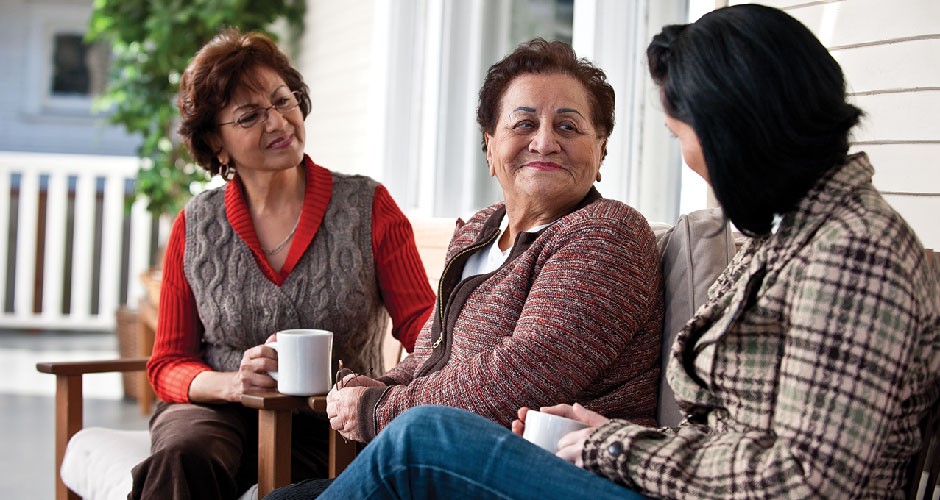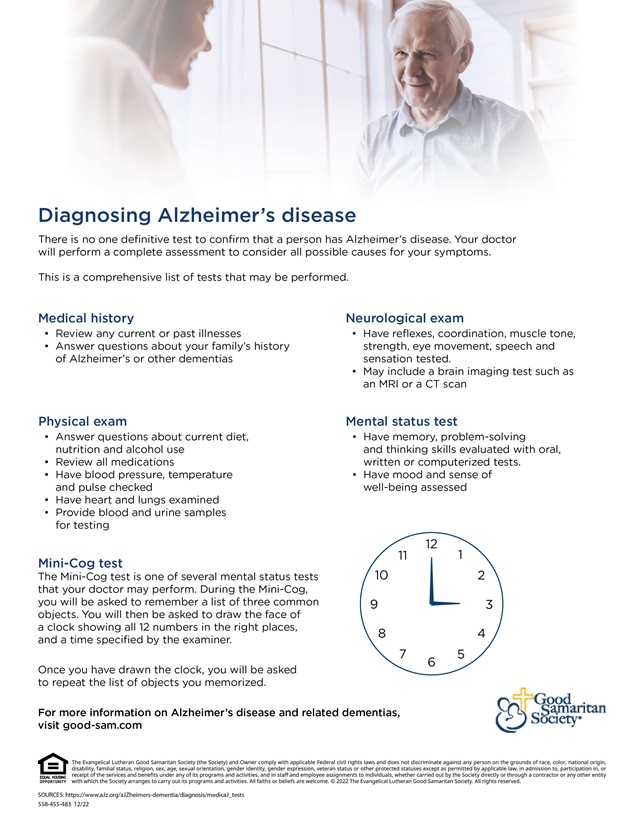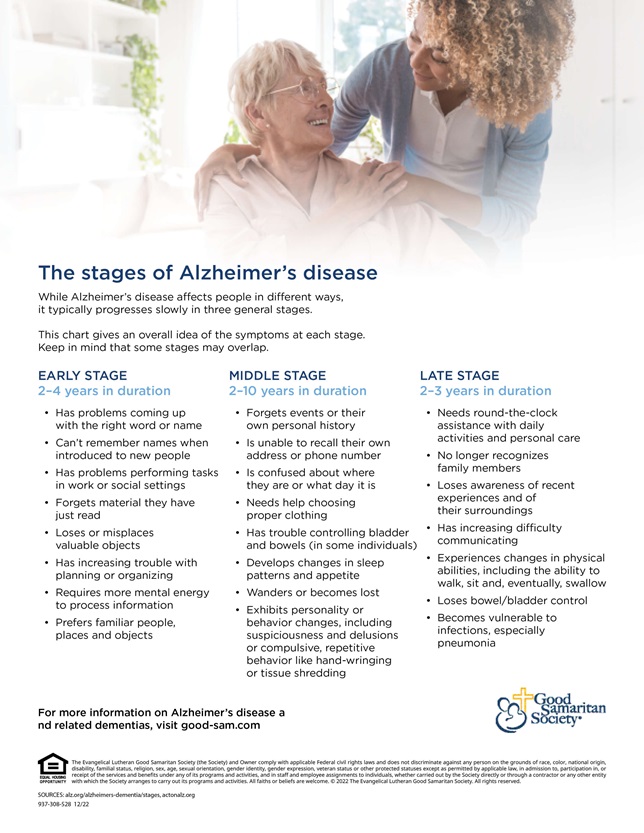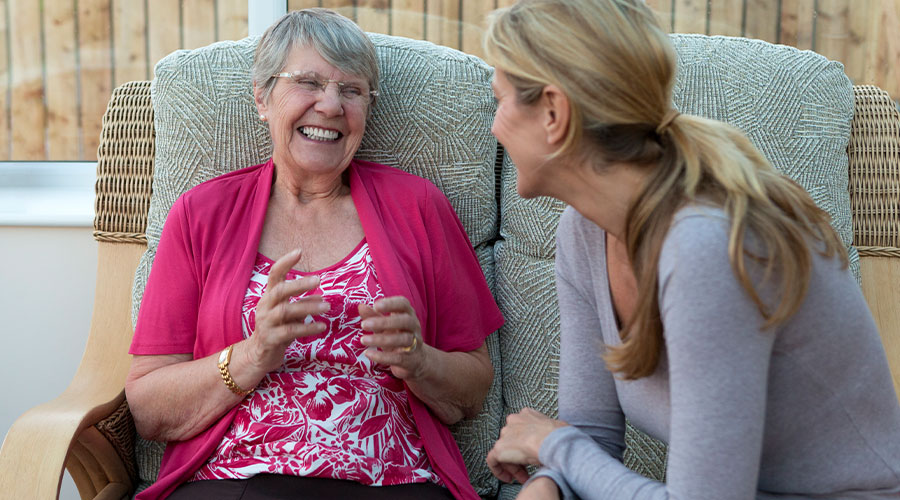Nearly everyone knows someone who has been affected by Alzheimer’s disease.
And while the number of people currently living with the disease — 6 million — is staggering, those numbers are just the tip of the iceberg.
1 in 3 seniors dies with Alzheimer’s or another dementia.
With this disease touching so many lives, it’s important to have the basic facts.
What is Alzheimer's disease?
Alzheimer’s disease is the most common form of dementia, an umbrella term used to describe a range of symptoms associated with cognitive impairment and marked by memory loss, personality changes and impaired reasoning.
Forms of dementia include:
- Alzheimer's disease, which accounts for 60 to 80 percent of dementia cases.
- Vascular dementia, which accounts for 5 to 10 percent of dementia cases.
- Lewy body dementia, which accounts for about 5 percent of dementia cases.
- Frontotemporal dementia, which accounts for 3 to 10 percent of dementia.
What are the signs and symptoms of Alzheimer's?
While there are many symptoms of Alzheimer’s, the most common is difficulty remembering new information. Other signs and symptoms can include:
- Memory loss
- Confusion
- Repetition in conversations
- Changes in sleep and appetite
- Mood, personality and behavior changes
- Disorientation to time or place
- Poor judgment and problem solving
- Wandering, pacing or shadowing
- Deterioration of self-care
- Difficulty performing normal tasks
Many times, the person with these signs and symptoms may have difficulty recognizing that they are having issues, but it may be more obvious to friends and family members.
If your loved one begins to exhibit signs of memory loss or cognitive impairment or you’re exhibiting them yourself, it’s best to consult with a doctor to determine a diagnosis.
Why get tested?
Alzheimer’s is a frightening disease, and sometimes a person might want to ignore the warning signs. But an early diagnosis has several benefits, including:
- Access to medications, which — while they will not prevent or reverse the disease — can lessen your symptoms.
- The chance to make lifestyle changes, such as stopping smoking or becoming more physically, mentally or socially active, which may help preserve brain function.
- The ability to maximize your quality of life, such as spending more time with loved ones or taking a trip you’ve always dreamed about.
- The chance to plan for the future, including preparing an advance directive.
How is Alzheimer's diagnosed?
Alzheimer’s disease is commonly underdiagnosed by physicians, so if you suspect you may have it, you should specifically request to be tested by your doctor.
This infographic lists the types of information your physician may gather to make a diagnosis. Consider printing and sharing this information with caregivers and loved ones in your life.
Testing can sometimes take multiple visits in order to gather enough information to determine the reason for your symptoms and to eliminate any other potential causes. If possible, bring a friend or relative with you to these appointments.
I've been diagnosed with Alzheimer's — what now?
A diagnosis of Alzheimer’s is life changing. But you don't have to feel helpless. There are many steps you and your loved ones can take to ensure you have the best quality of life for as long as possible.
After your Alzheimer’s diagnosis, you may want to participate in one or more research studies to help find treatment or a cure for Alzheimer’s.
- Take care of your emotional needs. You may feel anger, denial or a sense of loss. Writing these feelings down or sharing them with a friend, loved one or support group can help you cope.
- Educate yourself. Learning more about the disease and ways to care for yourself and your loved ones at this time is empowering.
- Care for your physical, mental and social well-being. Staying healthy in these areas can also help your cognitive functioning.
- Plan for the future. Now is the time to talk with your loved ones about your future wishes, build a plan of care, and put in place advance directives such as a healthcare power of attorney and a living will.
Your loved ones will also be affected by your diagnosis, not only emotionally but also physically, mentally and financially as they support you.
When your loved one has Alzheimer’s
What are the stages of Alzheimer’s disease?
Alzheimer’s is a progressive disease, and at this time, there is no known cure. A person lives an average of four to eight years after diagnosis, but can live as long as 20 years depending on other factors.
While Alzheimer’s is best known for affecting thinking and memory, it’s important to know that physical abilities are also deeply affected in the late stage of the disease. This will help with planning for future caregiving needs.
This infographic shows the stages of Alzheimer’s and the average number of years for each stage. Consider printing and sharing this information with caregivers and loved ones in your life.
Where do I go for support?
Being diagnosed with Alzheimer’s can be scary, but remember you aren’t alone. There are many resources out there to help you navigate your future. The Alzheimer’s Association can connect you with phone support, local resources and support groups, education programs and online tools.
How to support a loved one with dementia
Have more questions or need help?
Sources: alz.org, actonalz.org




![Alzheimer’s disease: What is sundowning? [video] Alzheimer’s disease: What is sundowning? [video]](/-/media/project/good-sam/resources/items/sundowningedit.jpg?h=500&iar=0&w=752&hash=CED7F1A1B411DC101BECBBEE81A96CDB)

